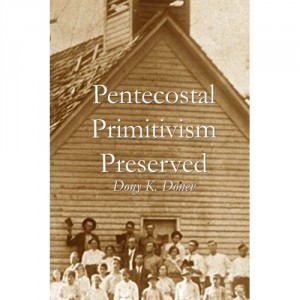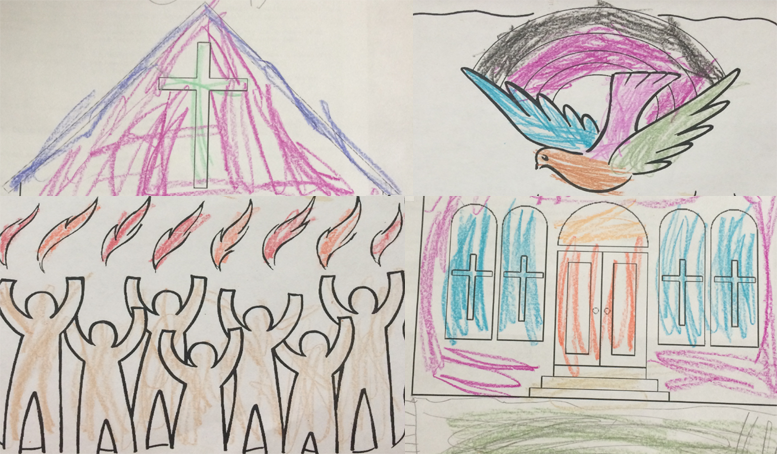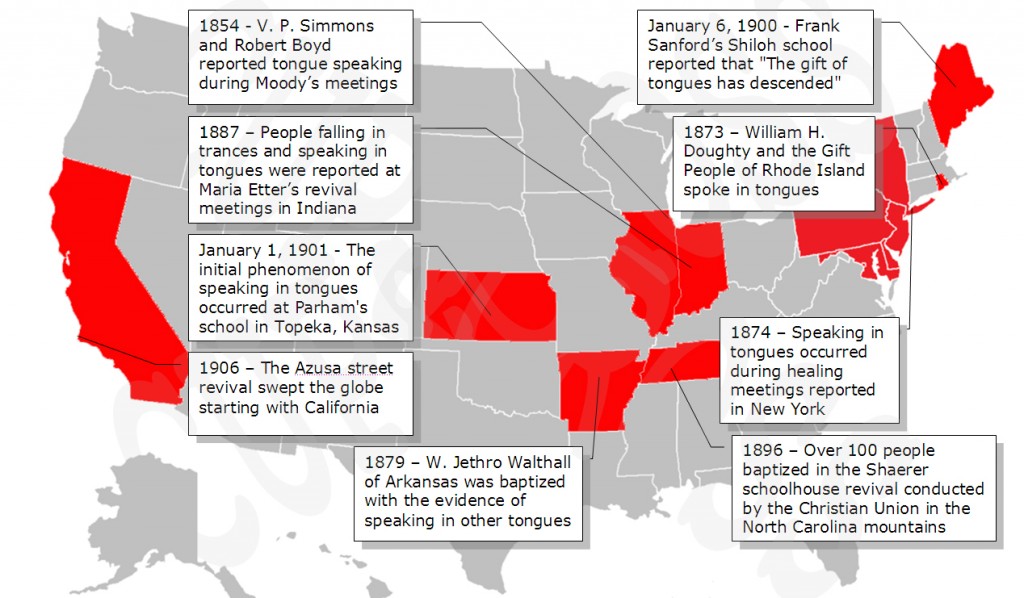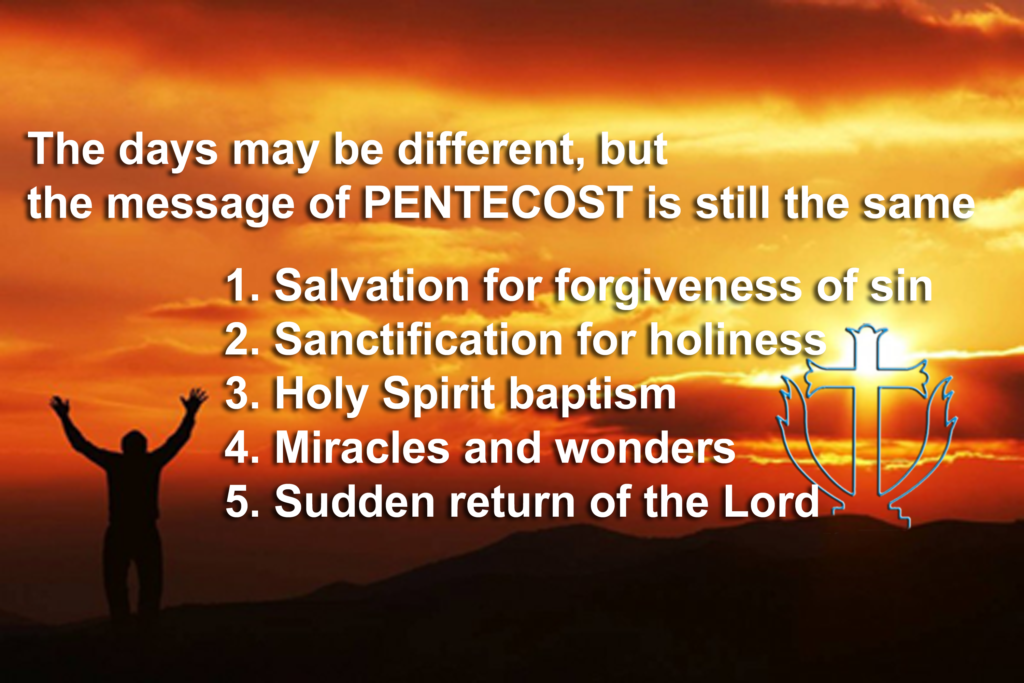How a Small Ocoee Flower Shares a Big Story
With VBS season upon us, we are always looking for inventive ways of sharing the Gospel with our little ones. We are internally motivated by the Biblical mandate of Proverbs 22:6. When we start children off on the way they should go, even when they are old they will not turn from it. So this summer let us shift focus from the Corona Virus to the Corona Filaments of a small plant that tells a big story.
When Spanish Christian missionaries arrived in the jungle of Brazil in the 16th century, they discovered a plant with such beauty and distinctiveness unlike any they had seen before. These explores were encouraged feeling it was a good sign for their mission. After closely observing the structure of the plant’s bloom, they called it the passion flower because to them it symbolized the passion or death of Christ.
This exotic flower (Passiflora Incarnata) grows wild in South America and the southern United States as well. Beginning around June is when you first see the vine emerge from the grown after laying dominate all winter. It is the official state wildflower of Tennessee and is sometimes know as the maypop (term given by the Powhatan Indians), wild apricot, Holy Trinity flower and the ocoee. The Cherokee were the ones to referred to the passion vine as “u-wa-go-hi” or “ocoee”. The root “oco” refers to the plant and “ee” describes location. The word “ocoee” literally means the apricot vine place. The passion flower was considered to be the most beautiful of all flowers among the Cherokee and to this day it is a revered piece of their heritage.
Here’s how a small flower turned to be the center stage of the story of Christ’s ultimate sacrifice.
The passion flower is a strong plant that is resistant to pulling and bending as was Christ who endured the horrific pain of a crucifixion. The radial corona filaments of the flower represent the woven crown of thorns which mocked Christ’s claim of authority. This corona rests upon a cup-shaped structure that reminds of the cup of suffering and the Last Supper. The spiraled tendons of the plant are symbols of the lashes Christ endured and the flower’s trailing tendrils are like the whips. The central flower column receptacle is symbolic of the pillar of Christ’s scourging. The three stigmas are symbols of the nails used in the crucifixion as well as the Holy Trinity. The five anthers remind us of the five piercing wounds Christ suffered. Together the five petals and five sepals refer to the ten disciples who did not betray or deny Jesus. The palmate leaves depict the hands of His persecutors or the Holy lance that pierced Christ’s side. The fragrance of the flower helps us recall the spices used in the burial cloth for the body of Christ. The purple color is symbolic of royalty, the white is for purity. The shape of its fruit is symbolic of the world that Christ saved through his suffering. Finally, because the passion flower is a vine it points to Heaven and will compete with surrounding trees to see the light.
Cup & Cross Best Selling Cookbook “Cooking Traditions of Bulgaria” Now Available on Barnes and Noble
It is a true privileged to have one of our most popular publications available on Barnes and Noble. Get your copy today here:
https://www.barnesandnoble.com
OAHU SCHOOL OF WORSHIP 2020 ONLINE
Small Churches Are Popular – Half Of Churches Are Small in 2020
Small Churches Are Popular
When it comes to attendance, 46% of people attend small churches with 100 or fewer members. Typically, this is due to the fact that smaller churches are more prevalent and easy to get to. They’re also often more community oriented for those who want to build relationships with the majority of other members.
Half Of Churches Are Small
To prove how prevalent small churches are, the same study as above found that 50% of churches have 100 members or fewer. Small to medium churches make up another 40% of churches and have 100-350 members. Sometimes it’s not about having the most members, but retaining and engaging the members you do have.
Digital Discipleship at Lee University
Digital Discipleship is a practical training manual for the use of collaborative online tools, digital storytelling, creative websites, and mobile networking in the ministry of the Church. This course is intended to provide students with a hands-on toolbox for extending their present ministry to the internet world with the intent of soul-saving and discipleship. There are no pre-requisites to this course, and it is open for enrollment to current students or new applicants. This 3-credit-hour, fully online, asynchronous course will take place June 23 to Aug. 10. To register, visit applytolee.com and use the code DIGITAL (case-sensitive) to waive the $25 application fee.
Lee University 2020 Church of God Scholarship Program
Receive a Lee Online student scholarship of $1,000, disbursed over the academic year – Fall, Spring, and Summer. Continuous enrollment is required. Details are important, so here are some of the finer points of this special scholarship offer:
- The scholarship is open to new applicants starting a program in August 2020.
- The $1,000 will be applied evenly over the 2020-2021 academic year (Fall, Spring, Summer), so make sure you stay enrolled to reap the full reward.
- The award can be used towards Lee Online certificate, undergraduate or graduate programs.
- Enroll full-time (two classes per session) or part-time (one class per session).
- It can be combined with the ministry or military/first responders program tuition discounts (but not with other scholarships).
Make sure to use SPIRIT (case-sensitive) as your discount code when you applytolee.com so that we can reserve your scholarship funds.
Ensure Eligibility
Available to newly enrolled Lee Online undergraduate, graduate, or certificate students with a start date of August 18, 2020. May not be combined with any other offers or scholarships.
Register for your scholarship today here: https://leeuniversity.edu/cog/
Pentecost Sunday Full Gospel as Preached by the Early Pentecostals
I keep on repeating this through the years, but the need for the constant repetition comes from the simple fact that among new doctrinal teachings and Hillsong style of worship the True Message of Pentecost remains long forgotten
- Salvation – That a man must be saved while the hour of grace is still upon us has been that teaching of every protestant evangelical since the Reformation. Why people attend church all their lives without getting saved is beyond me. But I do know that the commitment of the CHURCH to REVIVAL brings people to SALVATION.
- Sanctification – The Wesleyan teaching of sanctification resolves that the sanctification of the believer is definite. This means that though it may progress and evolve through time, as the believer gets closer to God in his/her daily walk, sanctification must become ENTIRE i.e. allowing NO sin to abide in the believer’s body, soul or spirit. Without ENTIRE sanctification resulting in holiness, no one will ever see God (Heb. 12:14).
- Holy Ghost Baptism – The doctrine of the Baptism with the Holy Ghost means that when baptized we speak in one tongue with God because we are ONE with His Spirit. Not just in us or upon us, but that we are IN the Spirit as John was on the day of Revelation.
- Healing in the Atonement of Christ belongs to every believer. This means you, your family and your church members. The healing provided in the Atonement is for ALL believers – no exception. It is also for ALL sickness, disease, viruses, infections, tumors and cancers. But that it belongs to does not yet mean that it has been received by the believer. For this reason, God does not stop healing neither in this age nor through eternity, as the leaves of the Tree of Life in the New Jerusalem are still and forever for the healing (Rev. 22:2)
- The Second Coming of Christ for Pentecostals is not simply pre-millennial, but also pre-Tribulation. There have been MANY teachings on the End Times until today. Post-millennials claim we live in the Millennium even now anticipating the return of the Lord; a-millennials that there will be no Millennium at all. Post-tribulationists expect his return at the end of the Tribulation, mid-post-tribulationists in the middle. But in Pentecost, we expect Christ to return before the Tribulation that we may be saved from the hour of trial (Rev. 3:10) and before the Millennium so we may reign with Him 1,000 years. Any other message is no message of hope for the Church of the Living God.
Speaking in Tongues in America Prior to the Azusa Street Revival of 1906
April, 1906 – The Azusa street revival swept the globe starting with California
January 1, 1901– The initial phenomenon of speaking in tongues occurred at Parham’s school in Topeka, Kansas
January 6, 1900 – Frank Sanford’s Shiloh school reported that “The gift of tongues has descended”
1896 – Over 100 people baptized in the Shaerer schoolhouse revival conducted by the Christian Union in the North Carolina mountains
1887 – People falling in trances and speaking in tongues were reported at Maria Etter’s revival meetings in Indiana
1874 – Speaking in tongues occurred during healing meetings reported in New York
1873 – William H. Doughty and the Gift People of Rhode Island spoke in tongues
1854 – V. P. Simmons and Robert Boyd reported tongue speaking during Moody’s meetings

FURTHER READING:
Church of God (Cleveland, TN)
- Alive, alive! (A personal testimony)
- Church of God Primitivism
- Bulgarian Church of God
- J.W. Buckalew
- Why revival came? by Dr. Charles Conn
Azusa Street Revival of 1906
- Lucy F. Farrow: The Forgotten Apostle of Azusa
- The FORGOTTEN ROOTS OF THE AZUSA STREET REVIVAL
- Azusa Street’s Apostolic Faith Renewed
- Azusa Street Sermons
- Pentecostal Primitivism Preserved
Prior to Azusa Street Revival of 1906
- First person to speak in tongues in the Assemblies of God was William Jethro Walthall of the Holiness Baptist Churches of Southwestern Arkansas
- The Work of the Spirit in Rhode Island (1874-75)
- Speaking in Tongues in America Prior to the Azusa Street Revival
- WAR ON THE SAINTS: Revival Dawn and the Baptism of the Spirit
- How Jezebel Killed One of the Greatest Revivals Ever
The message of PENTECOST is still the same…
June 1, 2020 by Cup&Cross
Filed under Featured, News, Publication
Since the beginning of the 21st century, only 6-10% of new born believers in America receive the Baptism with the Holy Spirit, which by 2018 has resulted in:
- Over 60% within Global Pentecostalism do not speak in tongues
- A major doctrinal shift within Pentecostal Theology today claims speaking in tongues is not the only evidence of Holy Spirit Baptism
- Some theologians even claim there is no initial evidence in the Bible
- Others today go further to believe that no outward sign of the Holy Spirit baptism is necessary.
For this reason, WE are re-committing ourselves and ministry to revival and restoration of the Pentecostal Message through praying, fasting and preaching:
- Salvation of the sinner’s soul and entire sanctification through the Blood of Jesus
- Baptism with the Holy Spirit and fire with initial evidence of speaking in tongues
- Supernatural gifts and ministries of the Holy Spirit
- Healing, deliverance and signs following
- Pre-Millennial return of Christ and pre-Tribulation Rapture of His Church to glory
Please consider the URGENCY of this generation!
Let us reason together what can we do to prevent this rapid decline in Biblical spirituality.
Revival will not come without preaching!
Revival of Pentecost will not come without preaching the Message of Pentecost.
Speaking in Tongues in America Prior to the Azusa Street Revival of 1906
April, 1906 – The Azusa street revival swept the globe starting with California
January 1, 1901– The initial phenomenon of speaking in tongues occurred at Parham’s school in Topeka, Kansas
January 6, 1900 – Frank Sanford’s Shiloh school reported that “The gift of tongues has descended”
1896 – Over 100 people baptized in the Shaerer schoolhouse revival conducted by the Christian Union in the North Carolina mountains
1887 – People falling in trances and speaking in tongues were reported at Maria Etter’s revival meetings in Indiana
1874 – Speaking in tongues occurred during healing meetings reported in New York
1873 – William H. Doughty and the Gift People of Rhode Island spoke in tongues
1854 – V. P. Simmons and Robert Boyd reported tongue speaking during Moody’s meetings

FURTHER READING:
Church of God (Cleveland, TN)
- Alive, alive! (A personal testimony)
- Church of God Primitivism
- Bulgarian Church of God
- J.W. Buckalew
- Why revival came? by Dr. Charles Conn
Azusa Street Revival of 1906
- Lucy F. Farrow: The Forgotten Apostle of Azusa
- The FORGOTTEN ROOTS OF THE AZUSA STREET REVIVAL
- Azusa Street’s Apostolic Faith Renewed
- Azusa Street Sermons
- Pentecostal Primitivism Preserved
Prior to Azusa Street Revival of 1906
- First person to speak in tongues in the Assemblies of God was William Jethro Walthall of the Holiness Baptist Churches of Southwestern Arkansas
- The Work of the Spirit in Rhode Island (1874-75)
- Speaking in Tongues in America Prior to the Azusa Street Revival
- WAR ON THE SAINTS: Revival Dawn and the Baptism of the Spirit
- How Jezebel Killed One of the Greatest Revivals Ever














